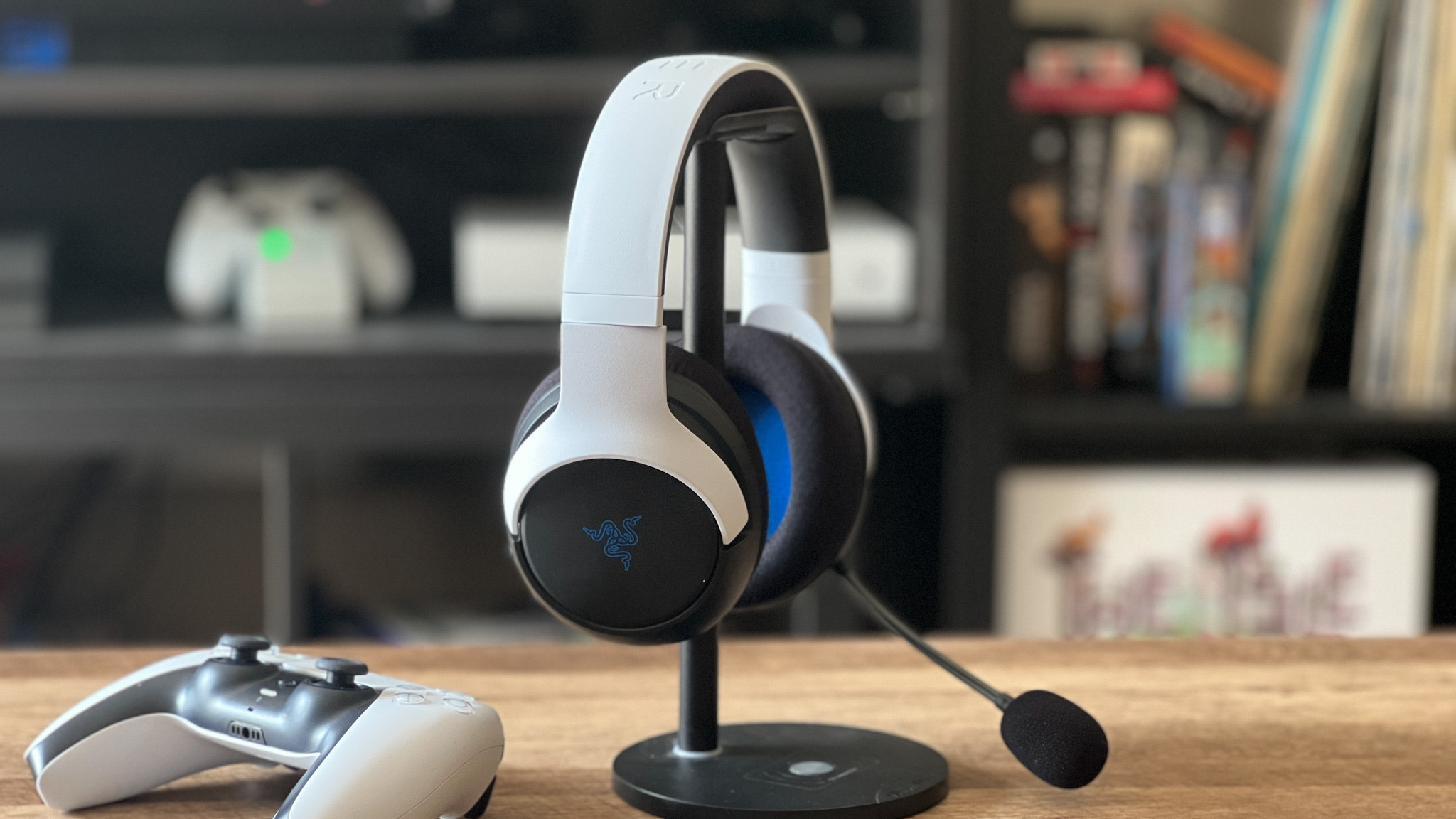GamesRadar+ Verdict
The Razer Kaira is a solid set of cups born to appeal to everyday players who want to invest a little in some higher-quality audio. While some sacrifices are evident in the design and fine-tuning of the bass ranges, this is a competent set of cups that will look great next to your new console.
Pros
- +
Premium feeling design and materials
- +
Balanced mid-range treatment
- +
Coped well with heavier soundscapes
- +
SmartSwitch is an unexpected gem
Cons
- -
Emphasized bass
- -
Non-detachable mic
- -
Headband lost its comfort after a few hours
- -
Not worth it if you don't need wireless
Why you can trust GamesRadar+
The Razer Kaira sits squarely in the middle of the brand's current PS5 lineup. Sandwhiched between the budget $59.99 / £59.99 Kaira X and the $199.99 / £199.99 Kaira Pro. At $99.99 / £99.99, though, what are you achieving by scaling up from the cheaper model, and is it worth dropping down from that lofty $200 price tag?
With a spec sheet that looks fairly similar to the $40 cheaper X model (aside from wireless functionality), we put the Razer Kaira for PlayStation through its paces to see exactly where it sits among the best gaming headsets, and whether it should be considered one of the best PS5 headsets on the market.
Design
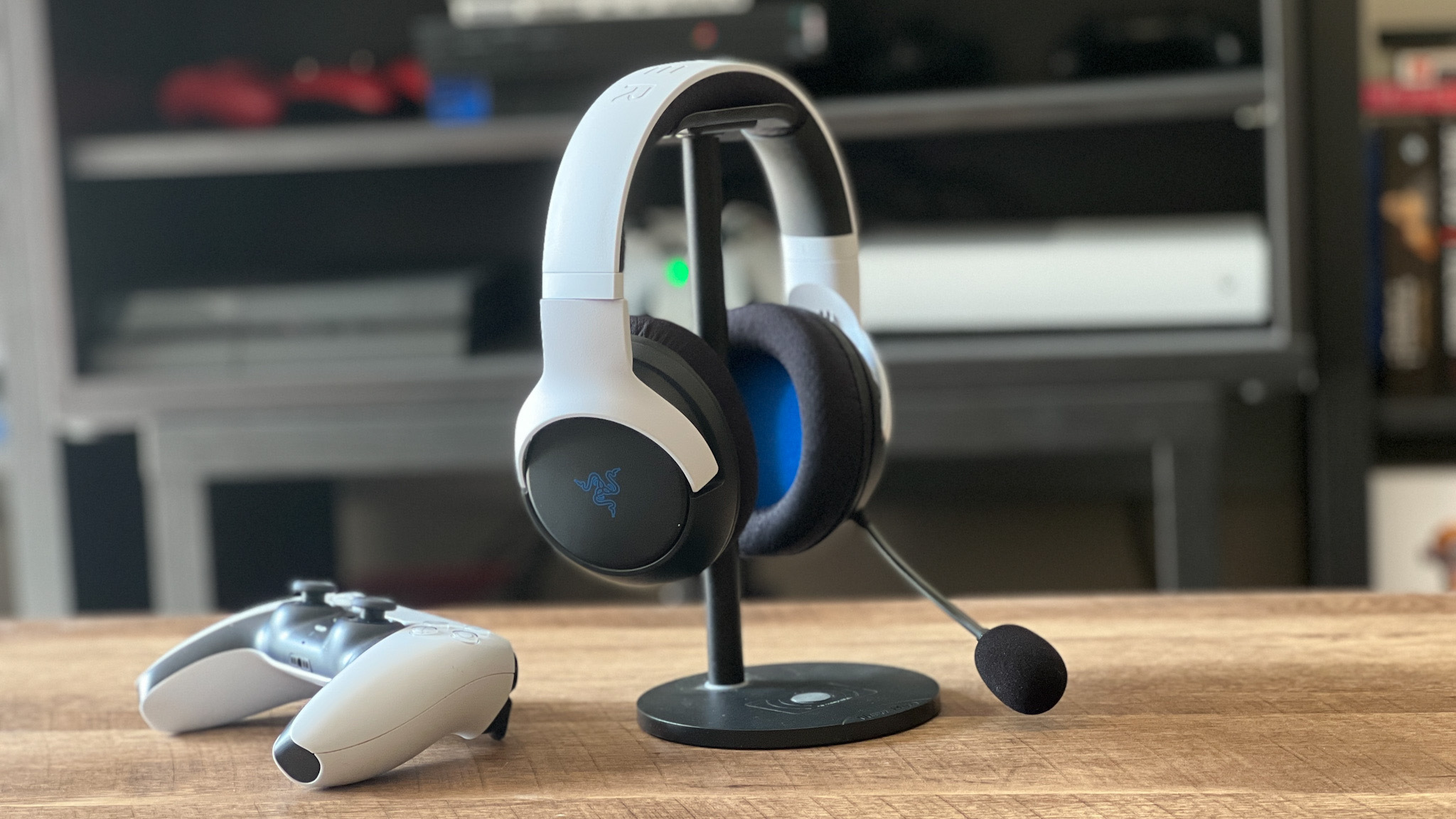
You're getting the same plastic design as the Kaira Pro and X here, with that classic PS5 aesthetic running throughout. I was impressed with the level of finish here, with a strong, durable plastic shell coated in a premium feeling matte finish. The outer headband and main hinges carry the console's crisp white, with black cups and cushions running underneath the headband. All of that is topped off with blue Razer logos on each side, and blue fabric on the inside of each cup.
That's perfect for anyone looking to pair their headset with their console's aesthetic, as few devices aside from the official Pulse 3D headset match this color palette.
The Razer Kaira drops the leatherette finish of the Pro model and opts instead for a flowknit covering over its memory foam cushions, offering a lightweight and snug fit that allows plenty of breathability. The headband does offer a secure feel, but I found it to be a little too clamped during longer sessions. The cushioning running along the middle of the set feels too thin to comfortably pad past the three-hour mark.
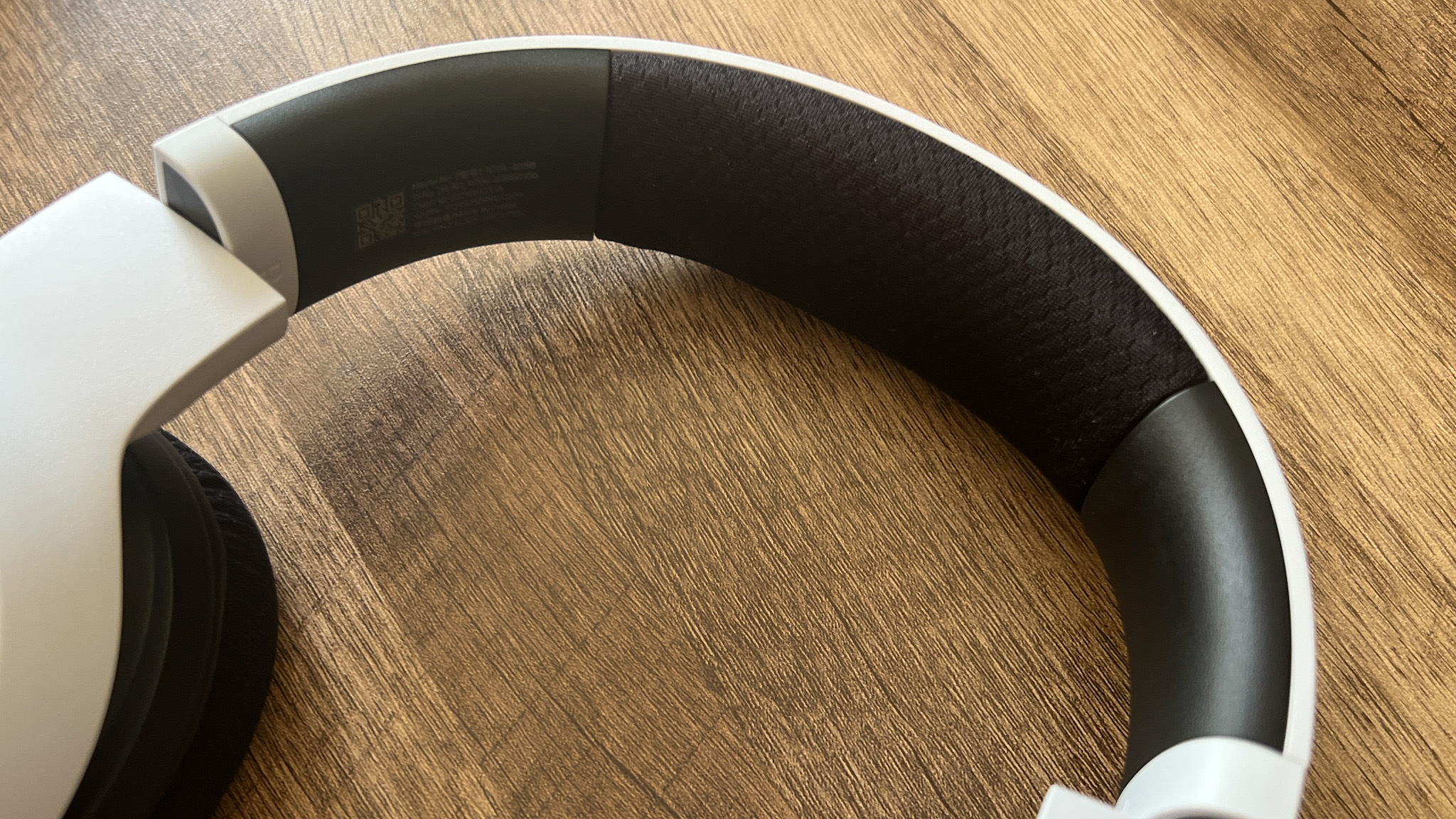
Overall, though, there's a solid weight to the Razer Kaira, and one that belies its $99.99 price tag. It feels more luxurious than the Pulse 3D model, while offering greater comfort around the ears themselves and a sturdier feel to the hinges and headband.
Features
The Razer Kaira is a wireless gaming headset and can connect to your PlayStation via its USB-C dongle, or to other devices using Bluetooth as well. Razer has kept its SmartSwitch technology in here as well, which means you can pair up to your phone and PS5 at the same time to take calls and then switch back to game audio. This function worked flawlessly in practice, sending calls straight through and picking right up where it left off afterwards. Of course, you can also set the Kaira to only connect via the 2.4GHz dongle if you don't want to be interrupted.
This is where the extra cash spent on the Kaira comes into play. The X model is wired only, so not only are you dropping the freedom afforded by a tether-free connection, but you're also losing other features such as SmartSwitch as well. I didn't think I would be as grateful for this quality of life upgrade as I was, so it's well worth considering the larger price.
This SmartSwitch button is located on the right cup, next to a game/chat balance wheel, and is mirrored by a volume wheel, mic mute switch, and power button on the left. Also present is a non-detachable cardioid microphone - heavy emphasis on the non-detachable.
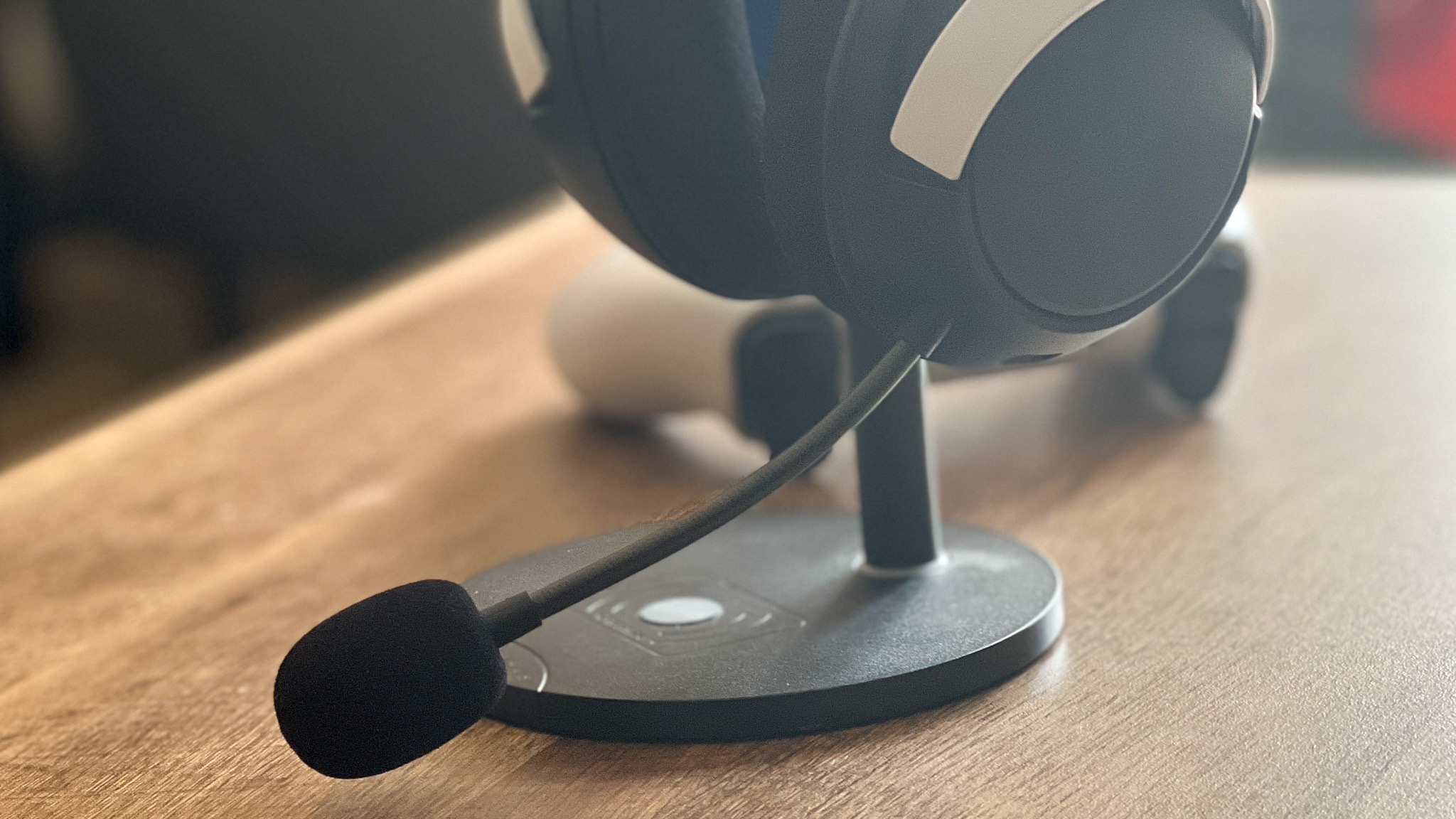
Unlike other headsets like the SteelSeries Arctis range, this mic is woven right onto the frame of the headset and can't be even retracted when not in use. That's a serious point of contention for anyone who needs their gaming headset to double up as a pair of headphones when out and about. The mic itself performs admirably. This isn't going to beat the best microphones for streaming, but it can carry a voice well and keep things clear and crisp while doing so.
Razer boasts a 30-hour battery life for the Razer Kaira - something I wasn't quite able to match in everyday life. I did, however, manage to keep this headset alive throughout a week of daily 3-4 hour sessions, and a few extra hours at the weekend - totaling between 24 and 26 hours.
Performance
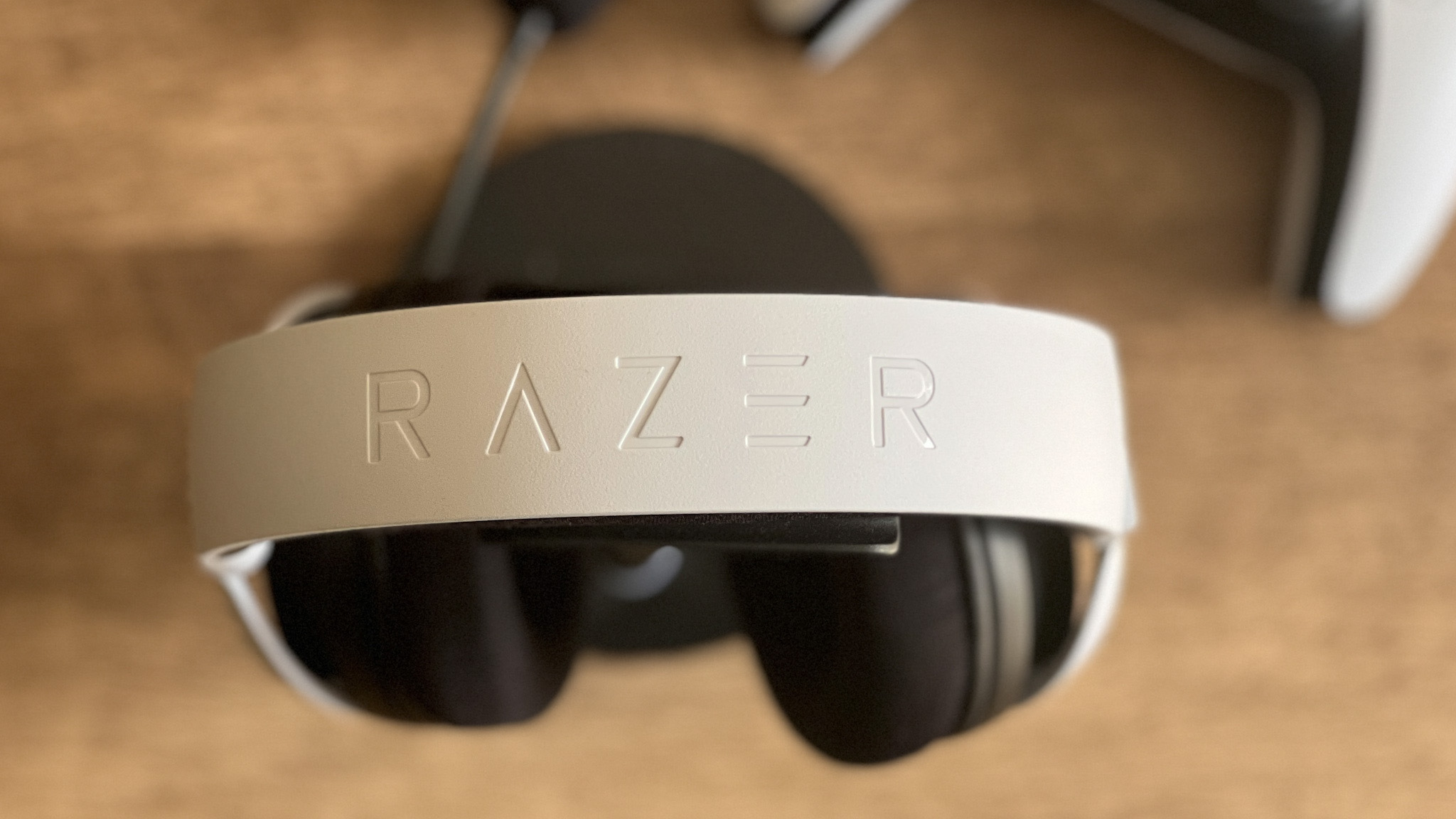
I was largely impressed with the audio pumping out of these 50mm Triforce drivers. The Razer Kaira is adept at handling even the most clustered of Tiny Tina's Wonderlands battlefields, and managed to pick out individual sounds well. These more chaotic soundstages were also directionally represented well - I could pick out shambling skeletons from remote corners of mini-maps and find a much-needed death save candidate during the heat of the moment as well.
This is all well and good when there's a lot going on, but I did notice a slightly over-emphasized bass when finer details were brought to the forefront. The lumbering attacks of a giant Horizon: Forbidden West machine almost overwhelmed the soundscape on a number of occasions, causing smaller machine noises and environmental cues to buckle under the strain of the lower ranges. However, this bass boost was welcomed for its ear-shuddering treatment of heavier Doom Eternal weapons.
Should you buy the Razer Kaira for PlayStation?
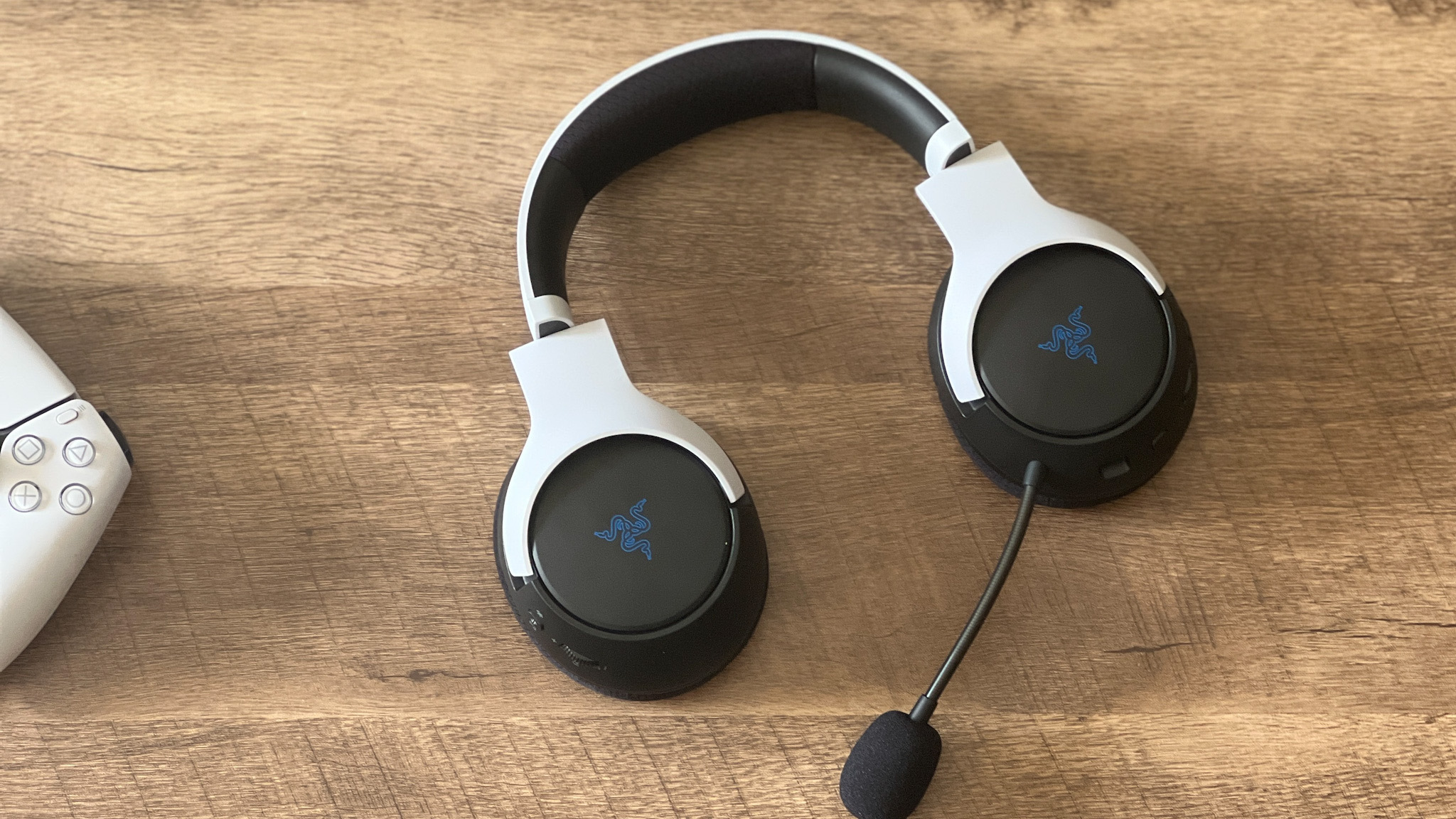
At $99.99, the Razer Kaira has been developed for the majority of players looking to invest in a nice but not bank-breaking set of cups for their PS5. If you can live without that wireless connection, though, there's very little else separating this set from the $59.99 Kaira X model. Anyone concerned about nearing that $100 threshold who doesn't need that 2.4GHz or Bluetooth connection will find much better value for money in the cheaper version.
However, if you're looking to spend a little more, it's worth noting that there are some significant advantages to upgrading to the Razer Kaira Pro. This $199.99 model features Razer's celebrated HyperSense haptic feedback technology, boosted titanium drivers, a detachable super cardioid mic, and the potential for a longer battery life with its RGB features switched off.
How we tested the Razer Kaira for PlayStation
I used the Razer Kaira primarily on PS5 over the course of three weeks, but also tested the headset's suitability for PC as well. On PS5, I played Horizon: Forbidden West, Tiny Tina's Wonderlands, and Doom Eternal for a full stress test, but I also used the headset on Shadow of the Tomb Raider on PC as well. I also watched Stranger Things Season 4 Part 1 from a 2020 iPad Air 4.
We're rounding up plenty more of the best PS5 wireless headsets, as well as the best PC headsets on the market right now. If you're on the other side of the console fence, though, you'll also find all our favorite Xbox Series X headsets.

Managing Editor of Hardware at GamesRadar+, I originally landed in hardware at our sister site TechRadar before moving over to GamesRadar. In between, I've written for Tom’s Guide, Wireframe, The Indie Game Website and That Video Game Blog, covering everything from the PS5 launch to the Apple Pencil. Now, i'm focused on Nintendo Switch, gaming laptops (and the keyboards, headsets and mice that come with them), PS5, and trying to find the perfect projector.
